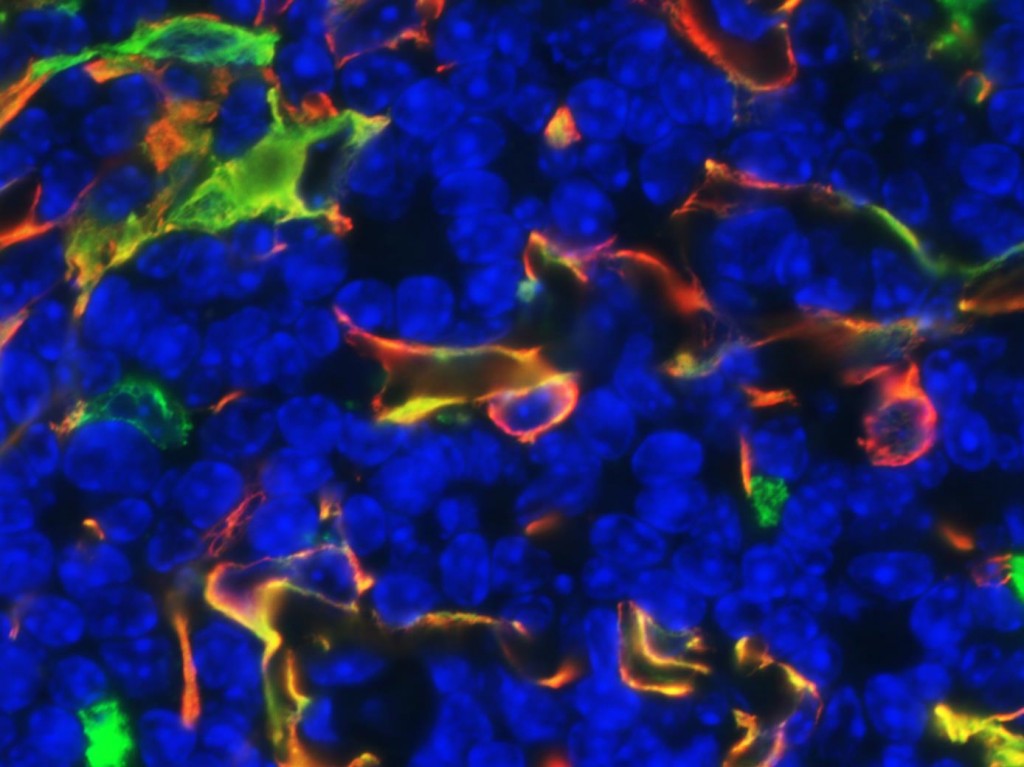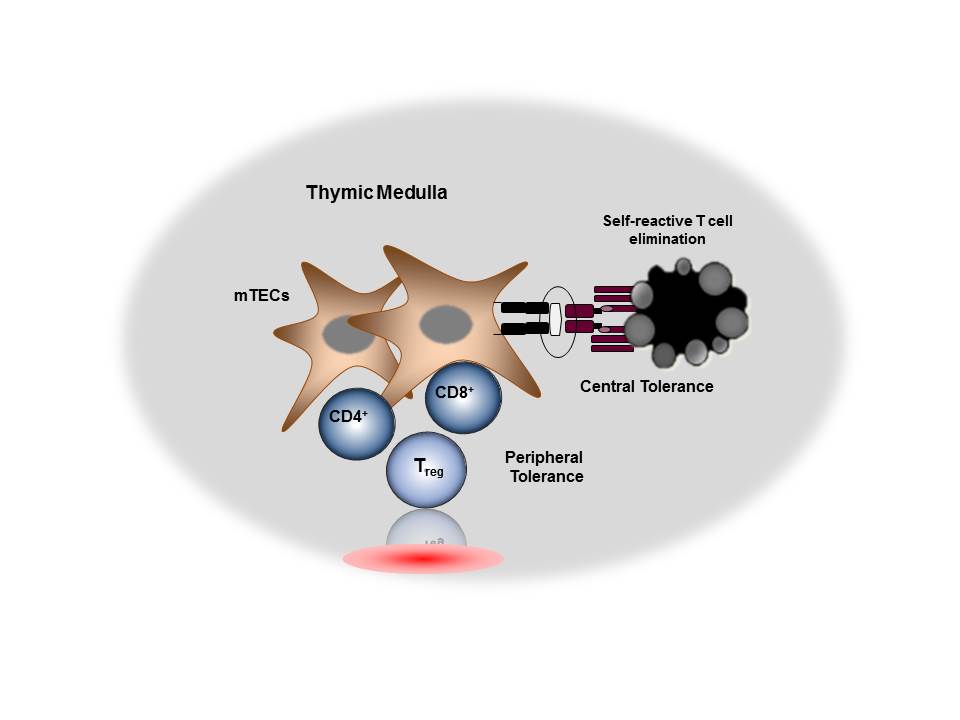Medullary Thymic Epithelial Cells
Research in the laboratory concentrates on elucidating the role of T cells in the development of chronic inflammation and/or autoimmunity. We are using genetically engineered mice lacking specific proteins and cell populations that disrupt the normal development of T cells, to determine whether/how this disruption results in the development of autoimmunity. T cells originate from bone marrow precursors that migrate to the thymus where they undergo a series of differentiation steps. Stromal thymic epithelial cells (TECs) regulate the survival and maturation of immature thymocytes through presentation of self-antigens on their surface. Medullary thymic epithelial cells (mTECs) in particular regulate the elimination of self-reactive T cells, a process called central tolerance. In addition, mTECs regulate the production of T regulatory (Treg) cells which suppress peripherally activated T cells (peripheral tolerance). Disruption of interactions between mTECs and T cells leads to aberrant elimination of autoreactive T cells, defective peripheral tolerance and organ-specific autoimmunity, manifested as T cell-containing inflammatory infiltrates and autoantibody production. We are currently using different mouse models with mutations that inhibit the development of mTECs to understand how disruption of thymic cross-talk between the medullary epithelium and T cells affects T cell selection in the thymus and whether T cells produced in a thymus depleted of mTECs mediate development of peripheral autoimmunity.


